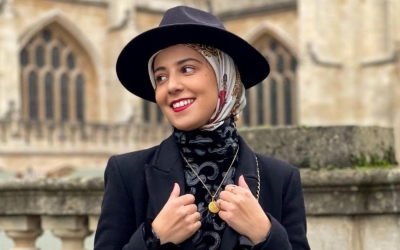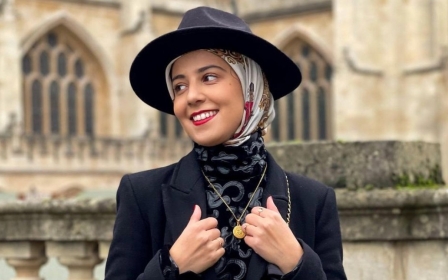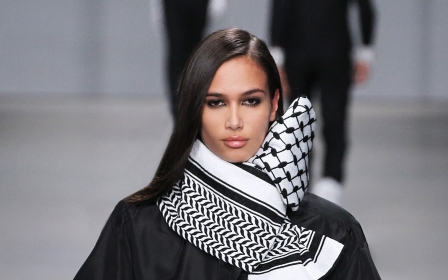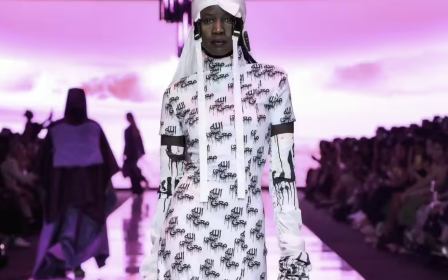Fashion designer apologises over Saudi flag miniskirt following backlash
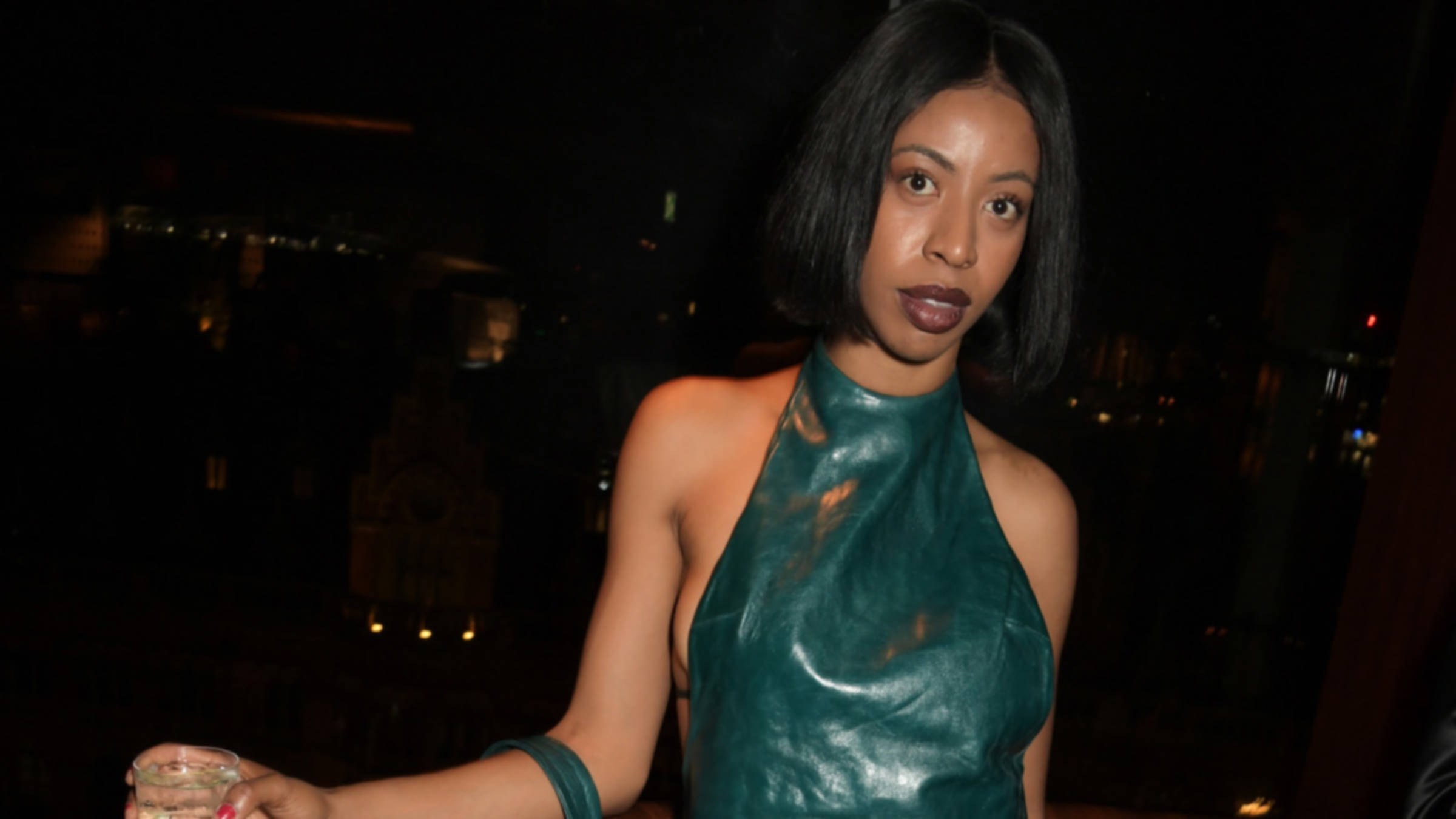
Fashion brand Mowalola has announced it will remove a Saudi flag miniskirt from its collection after coming under fire online when a model was seen wearing it at the brand's SS24 runway show.
People on social media denounced the design of the skirt, which features the Islamic declaration of faith, as it is part of Saudi Arabia's flag, as disrespectful.
The skirt displays the words "there is no god but God, and Muhammad is the messenger of God" on it in Arabic.
Other miniskirts worn by models on the runway featured flags of other countries, however, many said that the Saudi flag should not have been used due to the sacred writing on it.
"The whole situation around that miniskirt is not about defending that god awful country... Saudi Arabia, but a scripture that is sacred to billions of people. How hard is that to understand?" one social media user posted on X, formerly known as Twitter.
Many others shared the sentiment online.
"I am in no way shape or form religious, but this is extremely disrespectful. Knowing that the Saudi flag says the word Allah on it and they're using it as a provocative miniskirt shows how shameless the fashion industry has become in regards to religions of all kinds," another social media user said.
Others also questioned the intentions of the designer, calling on her to remove the skirt from her collection and accusing her of ignorance.
The designer initially tried to defend her choice, but the backlash continued.
"There's a reason why Saudi doesn't brandish its flag around the country. It contains the Shahadah [Islamic profession of faith]. Saudi has a whole set of laws just for the flag. It must be printed on both sides and folded, cleaned and destroyed all in a specific way. To put it on a skirt is disrespectful," one social media user wrote in response.
The designer later apologised for the skirts seen on the runway in a series of posts published on X on Saturday, and also promised to remove the design from the collection.
"One of my key inspirations for SS24 was to use the national flags of different countries. After the show, I found that one of these flags - Saudi Arabia - features sacred words, and its use has caused great offense. Now that I've been educated on this topic, I sincerely apologise," she wrote.
She continued: "I'll ensure this design is removed from the collection. I deeply regret any hurt or offense my oversight may have caused. Thank you for holding me accountable, and I appreciate your understanding as I learn from this experience."
The brand's designer is Nigerian-born Mowalola Ogunlesi, who is based in London.
The designer and singer is known for using a wide range of textures and materials in her designs, which are used to create non-traditional looks inspired by youth culture.
Ogunlesi has amassed over 300,000 followers on Instagram, where she shared photos of the skirt on her stories.
This is not the first time a brand has come under fire for featuring religious text on clothing.
Earlier this year, PayPal Melbourne Fashion Festival issued an apology after an Eritrean-Australian Instagram model called out a fashion label for the "disgraceful display" of religious texts on its garments at the event.
Mona Khalifa, a Melbourne-based model and influencer who was at the event, took to social media to condemn the fashion label Not A Man's Dream over a sheer outfit that was printed with the words "God walks with me" in Arabic.
This article is available in French on Middle East Eye French edition.
Middle East Eye propose une couverture et une analyse indépendantes et incomparables du Moyen-Orient, de l’Afrique du Nord et d’autres régions du monde. Pour en savoir plus sur la reprise de ce contenu et les frais qui s’appliquent, veuillez remplir ce formulaire [en anglais]. Pour en savoir plus sur MEE, cliquez ici [en anglais].


